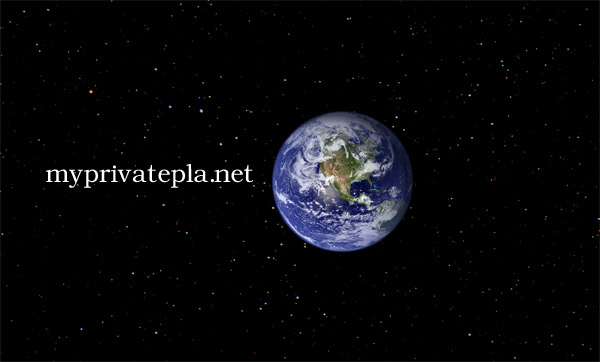A few years ago a friend and I started work on a new community site, something that could grow an IAM type site to much larger Facebook-scale levels (generating and running not just the social network but also many media projects from within its communities), while addressing many of the shortcomings that we saw in community software. It was what we’d hoped to host on myprivatepla.net (dead site; don’t bother going there) — although of course with Jason’s passing this project was shelved.
The two major shortcomings that we saw in existing engines, coming from our experiences running community sites (me with BME’s IAM, and Jason with his own IAM2 software) were scalability and trust. For the latter, we asked ourselves how a userbase could trust a website if they didn’t trust the people running it — for example, the cases where Facebook admins have poked around inside the private messages of celebrities or otherwise abused the privacy of the site’s members, to say nothing of government warrants violating privacy. Jason and I solved this by encrypting absolutely everything possible — but doing it client-side. That is, all of the encryption takes place in the browser, so by the time it makes it to the server it’s completely encrypted. If you’re sending a message from one person to another, only the people involved are able to see it in its true form.
Given how easy it was to achieve the encryption aspects, I’m frankly a little surprised that nobody has implemented something like this — even if no mainstream company wanted to support it, I don’t think it would be difficult to write a browser plugin that added this functionality to Facebook or any other social sites.
Scalability was the other concern. The original IAM software, using ten year old hardware, was seriously optimized and could handle about 20,000 users on a single server (plus a fileserver) — and I’d wager with today’s technology could easily handle well over 100,000 users per server due to its optimization bias. However, it didn’t scale cleanly past that, although there were drawing-board multi-server implementations capable of handling far more users… Nonetheless, it was far from cheap to host, and would have only become more expensive. Facebook is said to have approaching a quarter million servers (or four or five thousand users per server, not surprising given the inefficiency of code necessitated by their AJAX-heavy philosophy and extreme “live” design), and given by the desperate attempts they’ve made recently to monetize, it’s clear that it’s a challenge paying for it all — and even if you do figure out how to monetize a site that large, it’s often difficult to stay above water for the first few years before you hit critical mass. Since we were eyeballing a mainstream site, we brainstormed solutions to avoid all of this, perhaps to bypass most hosting costs altogether by changing the rules.
Since we’d built a design philosophy in which the servers didn’t have to be trusted — public key cryptography both kept content private and perhaps more importantly protected it from tampering, the idea evolved to completely get rid of all or the majority of the servers by offloading the servers to the client side as well… Since these days people’s home computers are often always online, they would act as the hosts, both hosting for the data (public and private), the bandwidth (again, both between users and to the public), and “brains” of the site. I’m sure there would be a way to achieve this via a massive browser plugin, but the thought was to do it via a standalone app that people could run.
The home server end of things drew from a lot of the technologies developed for the darknet, projects like Freenet and Tor. For example, when relevant Onionskin routing with encrypted data was used so that when data needed to moved around, it wasn’t clear what was being moved, to whom it was being moved, or what it even was. To deal with the reality that home computers, even if theoretically always on, rarely are, the home servers acted in clusters — private content (as well as acting as the server for mobile devices) was echoed across the computers of your friends. Public content replicated as it was viewed, both so that the more people wanted to see something, the faster it would get (like a torrent), but also so that content was extremely secure against censorship.
There was also a mountain of work done to define how the system worked from an interface point of view, how personal sites and business sites could be managed, how people could group together to publish content like magazines and blogs, and so on, and some of that’s quite clever (all the things that I wanted the next IAM to become — and looking back now, there were a lots of things IAM — founded well over a decade ago — did that were many years ahead of their time), but I think the encryption and distributed nature are more important and what I wanted to mentioned here before I forget.
The thought behind all of this was to create a trusted social web where every user that’s added, adds power to the system (rather than draining it, as you’d get in a central-server architecture). None of the ideas or technologies are fundamentally new, but I don’t think I’ve ever seen them synthesized quite in this way. My own project is completely dead in the water for a wide range of reasons, but I sure would to see someone implement it… Whoever does may well find themselves being a big part of creating a better world.




27 Comments
I enjoyed IAM for many years. You made it very user friendly and worry free :)
Very interesting ideas, but also very hard concepts to implement. This approach would require a fairly large amount of users right from the beginning for the system to work, and that all users share their precious bandwidth and processing power.
I’m really glad to read this.
Fortunately, there’s a number of projects working towards this goal (decentralized contents, user power, end to end encryption… in a nutshell: true Internet). Unfortunately, there hasn’t been enough cooperation on establishing standardized protocols and a lot of people are re-inventing the wheel with their own clique.
The most promising/interesting project to me is FreedomBox (https://www.freedomboxfoundation.org/). As for Diaspora alternatives or Diaspora itself, we’re yet to see where it goes, but the statusnet (running things behind https://identi.ca/ — a great Twitter alternative) protocol allows for a number of things already.
In any case, I’d love to see more bodymod presence on alternative networks — Anything that can help us move away from the Facebook police. Diaspora’s not _such_ a bad place to start…
I think the problem has been and always will be the end users.
No one cares about privacy or encryption. People want to be able to press a single button and have everything magically work for them. I’m not saying it’s impossible to create an application/network that is both easy to use and cryptographically secure but it seems most attempts have been unsuccessful at gaining adoption.
We already have many secure protocols at our own disposal: OTR, PGP, SILC, etc… but the problem is in the “network effect”, and getting everyone in is the hard part.
Moxie has a really great talk about the issues surrounding security and privacy in the current world of mobile internet, tracking, data mining/analysis and social networking: https://www.youtube.com/watch?v=cB9h1dRHwCY
Bye, Shannon. You’ll be missed.
I miss you already.
Such overwhelming sadness. You will be missed. X
RIP Shannon. I’m really going to miss following and hearing about your life. We never met, or even spoke, in fact I only commented on your blog a handful of times, but I will really miss you. I first began reading your modblog posts many years ago, and i’ve read your personal blog almost since the beginning, following your life through many different stages, and the birth of your daughter. I’m going to miss hearing your personal musings on the large variety of subjects you were interested in, and also about your life with Nefarious and Caitlin. Through BME you really helped form and confirm my ideas on body modification, and your impact on the world, especially in that area, is immeasurable. Knowing of your illness, i’m glad you’re no longer suffering, even if I, like you, don’t believe in an after-life, I guess you are at peace. I hope your memory remains positive, as I believe your impact was. Auf wiedersehen.
My heart breaks for your daughter and family, but I know you spent every moment and breath with her making it count.
I’ve been into body modification for many years. When I was doing research about piercings, I stumbled across bmezine.com. It opened my eyes to all the different kinds of modification and people out there that share that common ground. What a loss for anyone who knew him and all who looked up to him. R.I.P. Shannon..bme would have never been without you and without bme, I wouldn’t be me….which is what bme was all about. B ME Zine…
You and I never met; although you helped me in a multitude of ways. I realized that I could be who I am, a proud bisexual (on the side of gay) male, as a fan of body modification. I am sad to hear that Ari has lost her father, but I hope that at this point you are finally at peace. May the gods take care of you(I know you were an atheist, but most likely there is a higher power of sorts) and may the summerlands take care of you.
You will be missed Shannon; and may your path be strong.
Rest in peace, Shannon.
“It’s the emptiest and yet the fullest of all human messages: ‘Good-bye.”
Good-bye my friend.
Good night,Shannon.
RIP Shannon. You have been an inspiration to all.
Farewell Shannon, enjoy your new adventure into the great unknown – Your words will hopefully inspire a generation.
R.I.P. Shannon.
May your soul find serenity.
R.I.P.
No more pain. Forever Rest In Peace.
An epic loss to the bod mod world.
RIP
Indeed, this is a sad day.
yes
What is going on? Did something happen? :-(
My friend, my dearest friend. What great saddness has come over me when I read this today. I have known you since 2001. You have both inspired me, provoked me and at times, angered me with our conversations and views. I have watched how your body has betrayed you over the years and felt the pain of how difficult that must of been. You are iconic to me Shannon, I will miss you more then words could ever describe. The years spent on BME and afterwards will never be forgotten. To be part of the movement that changed body modification forever was not only a fantastic thing to be involved in, it was a noble one. I am proud to have served as one of your proverbial minions. I wish you find peace in the afterlife and I will think of you always. I love you my brother.
You were great. Period. There’s nothing I can say about what the future generation of body modification had lost today. All of us, part of this comunit will miss you. Thanks for everything Shannon.
RIP Shannon. I will miss your posts.
One last something worth reading.
Sleep tight, Shannon. <3
Post a Comment